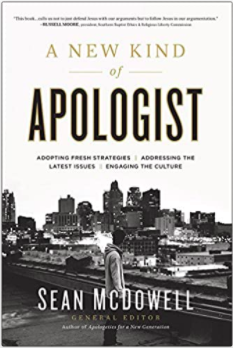SeanMcDowell.org
When it comes to discussions about faith and politics, perhaps the most commonly quoted verse is Matthew 22:21: “Therefore render to Caesar the things that are Caesar's, and to God the things that are God's.”
The point seems clear: The government and church are distinct domains with their own spheres of authority. Since we are citizens of an earthly state, we ought to pay taxes to the government. Our duties as citizens of Heaven lie elsewhere, right? Shouldn't faith and politics be kept separate?
The Political Teachings of Jesus
Such a conclusion misses the subtle political implications of what Jesus says.
In his excellent book Politics for Christians, Frank Beckwith explains:
“He [Jesus] first asks whose image is on the coin. The answer, of course, is Caesar’s. But an unsaid question begs an answer: What (or who) has the image of God on it? That is, if the coin represents the authority of Caesar because it has his image on it, then we, human beings, are under the authority of God because we have his image on us (p. 64).”
Jesus is brilliant. Coins bear the image of Caesar, and thus are under Caesar's jurisdiction. But since human beings bear the image of God, they are under God's jurisdiction. Caesar may have jurisdiction over governing, but since governments are comprised of people, God has jurisdiction over everything. Even Caesar himself bears the imago dei, and is therefore under God’s greater jurisdiction.
Citizens of Earth and Heaven
As citizens of both Earth and Heaven, Christians have obligations to the government and to God. Jesus is not teaching that we ought to live with divided loyalties to the government and church, but rather, that we have obligations to both.
What does this mean practically speaking? Well, since government ought to be concerned with the well-being of its citizens, and citizens bear the image of God, Christians ought to be concerned that government policy successfully accomplish this end. The Bible holds both individuals and governments accountable for being just (Micah 6:8; Psalm 72).
Theology Matters
And this can only be accomplished by incorporating certain theological principles such as human sinfulness, equality, human value, and the importance of the natural family for flourishing. Since these principles are objectively true, government policies will only be effective if they are reflective of them.
Yet let me make myself very clear: This does not mean Jesus came to set up a theocracy. He didn’t. He established a church. “Christian state” is an oxymoron.
It is a mistake for Christians to place their hope in government. And it is also a mistake to discard the responsibility Christians have to positively influence the political realm. Jesus did not teach that faith and politics should be kept entirely separate. They shouldn’t. Since God is ruler over everything, our faith must inform our political beliefs and actions.
The crucial question is not if faith should inform politics, but how.
If you are looking for practical strategies and creative approaches for engaging people, and the wider culture with your Christian faith, check out A New Kind of Apologist.


